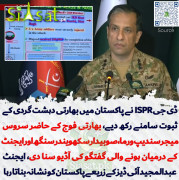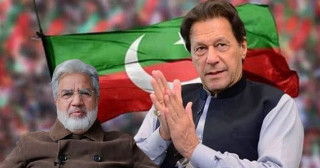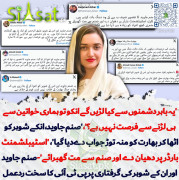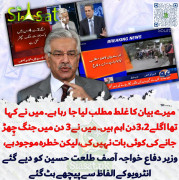ISIL: The Latest Disastrous Tool of Western Statecraft (Carta Maior, Brazil)
ISIL: The Latest Disastrous Tool of Western Statecraft (Carta Maior, Brazil)

This column deals with an issue that no U.S. official, or member of the mainstream media for that matter, will ever address or admit to: the deliberate fostering and creation of terrorist groups for the furtherance of American foreign policy. For Brazil’s Carta Maior, columnist Francisco Carlos Teixeira takes on the history of Western involvement in the Middle East, showing how it has exacerbated Sunni-Shiite tensions for its own purposes since at least the beginning of the last century. Teixeira writes that the reason such tensions are so prevalent in the Middle East today is that Washington has made the monumental error of seeing them as a handy tool for controlling countries like Iraq and Syria. Instead, though, the creation of groups like al-Qaeda and ISIL, aka/the Islamic State of Iraq and the Levant, has literally blown up in America’s face, along with that of its partner in crime, Saudi Arabia.
For Carta Maior, Francisco Carlos Teixeira begins with a run-through of the dawn of the Sunni-Shiite breach in the eighth century, Britain’s ‘appointment’ of a small minority of Sunnis to rule over the majority Shiites, starting in 1918 in Iraq, and then in Lebanon, Syria, Qatar, and Saudi Arabia, always resulting in ‘cruel and highly repressive dictatorships.’ He then takes up the issue of Iraq, and challenges Washington’s mantra that Iraq Prime Minister Maliki is flawed because of an incapacity to work with Sunnis and Kurds, laying out a series of reasons Washington wants him out, one of them being his refusal to go along with the Western strategy of toppling Bashar al-Assad in Syria. On that issue, and on the creation of the Islamic State of Iraq and the Levant, Teixeira writes in part:Baghdad charted a foreign policy independent of the so-called Arab Spring revolutions, especially in Syria. For Baghdad and Tehran, the situation in Syria was and is completely different from the other “Springs.”
Early on, they denounced the extensive foreign intervention from Qatar and Saudi Arabia, with the support of the United States, Turkey and France, to overthrow the Assad regime, comprised of a coalition of Shiites (Alawite) and Christians, which is nationalist in character, as well as pan-Arab and anti-Israel. Tehran and Baghdad denounced from the outset foreign intervention and the presence of mercenaries and volunteers from the Persian Gulf, financed by Saudi Arabia and armed by England and France, aimed at overthrowing the Damascus regime.
In Syria, a broad Sunni fundamentalist coalition formed that was extremely intolerant and conservative in character: al-Qaeda, the al-Nusra Front, and the Islamic State of Iraq and the Levant, called ISIL in English.
This coalition, in the beginning manipulated by Saudi Arabia, with the capacity to unify a wide swath of Arab territory under its authority and eliminate Iranian influence in the region, became increasingly autonomous, and eventually adopted the ideals of al-Qaeda, which was in the end overcome by the harshness and cruelty of the “Islamic State of Iraq and the Levant.”
Meanwhile, Al-Maliki caused great discomfort in Washington and Paris by supporting pan-Arab and Shiite groups in Lebanon, where the “Dawa Party,” a Lebanese cousin of Iraq’s Dawa and also very close to Tehran, confronted American and French troops in Lebanon.
Thus in recent years, the Obama-Clinton Administration (2009-2013), drawing ever closer to the American center-right and right, and to Saudi interests in America, has adopted a clear anti-Iran, anti-Dawa, anti-Shiite stance, based on a strategic triangle capable of ruling the Arab world centered in Turkey, Israel, and Saudi Arabia. For the sake of this obsessively anti-Iranian stance, Washington permitted the growth of Wahhabi fundamentalism (the most radical branch of Sunni Islam, which executes Shiite clergymen and destroys Shiism’s holy places), and the formation of a large army to which it gave a territorial basis for dominating regions of Syria and Iraq – something that al-Qaeda never succeeded in doing.
Strangest of all, to sum up this immense list of strategic, political, and anthropological mistakes made by Washington, is that the death of Osama bin Laden strengthened and accelerated the fight against the Baghdad government established by the American invasion in 2003. The elimination of the charismatic leadership of bin Laden among his followers and sympathizers allowed for the emergence of dissident forces such as the Islamic State of Iraq and the Levant and its proclamation of the “caliphate,” opening up a new and explosive reality in the Middle East.
All told, the United States acted like Harry Potter upon obtaining his first magic wand: it liberated forces it didn’t understand or control. The crucial difference is that in this case, there is clear risk of general chaos and a bitter end for the local peoples.





























